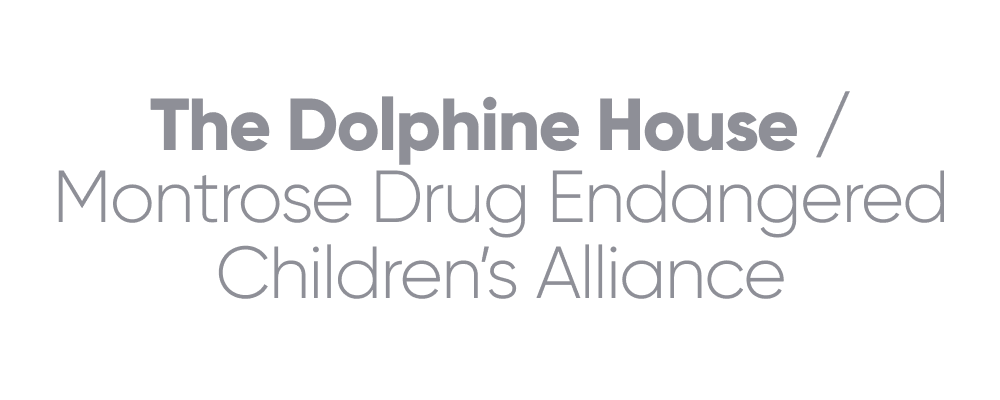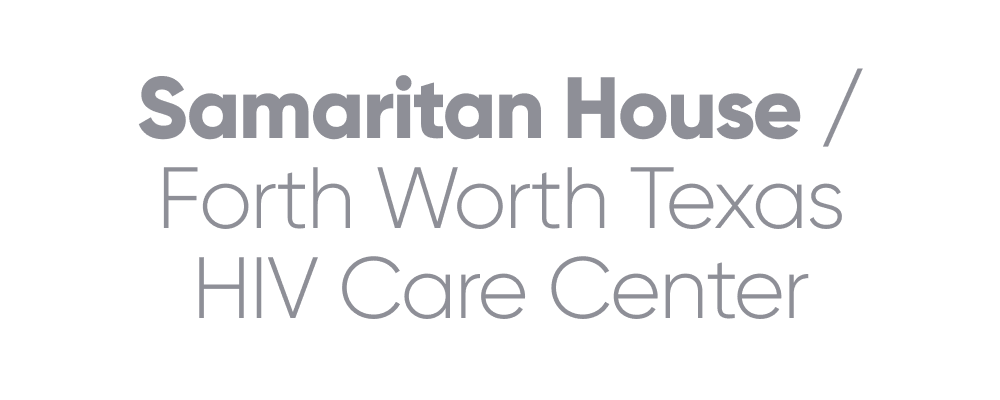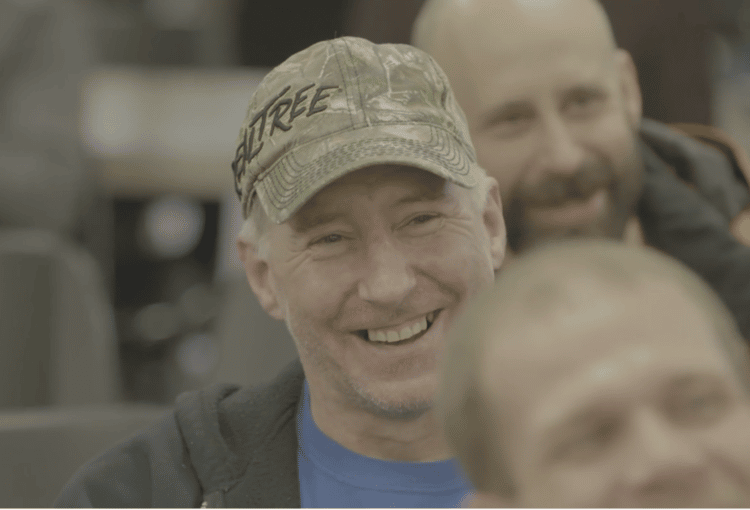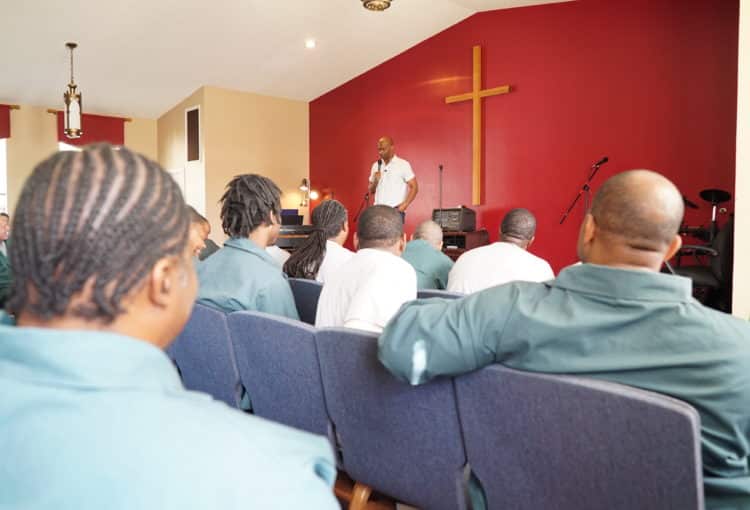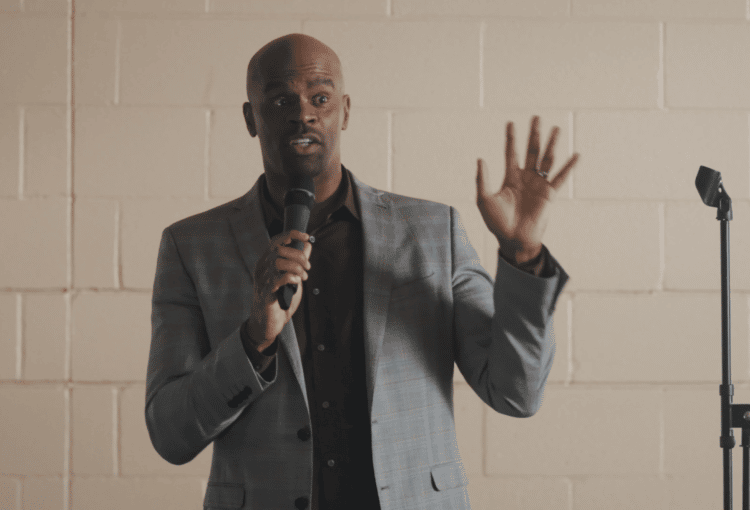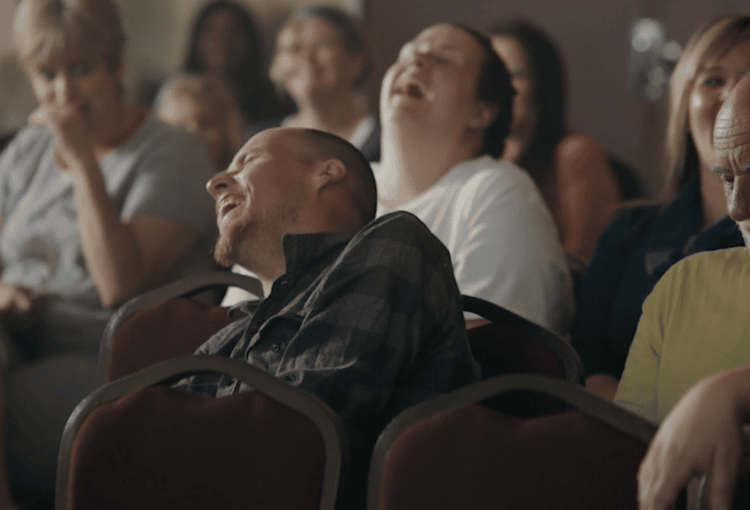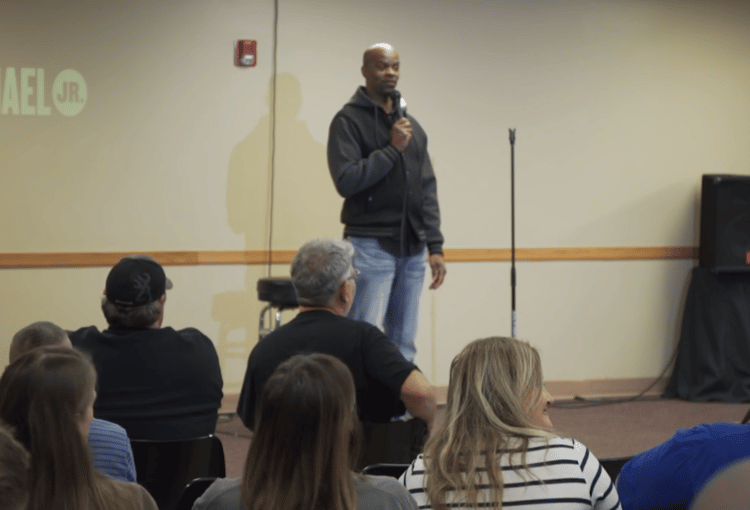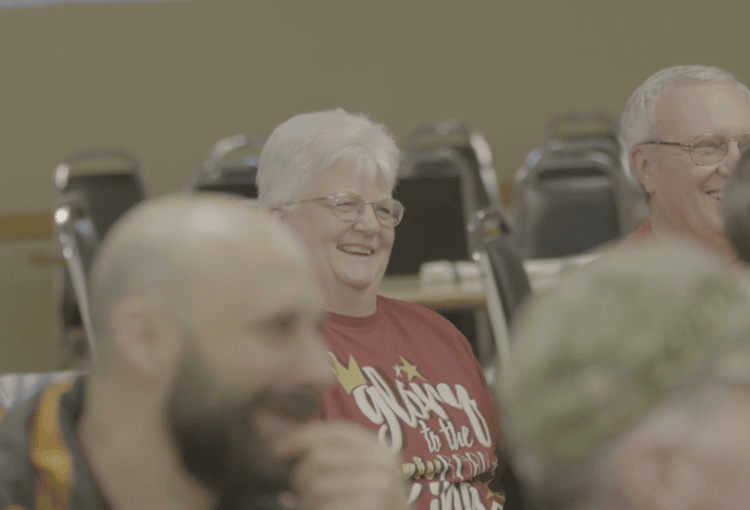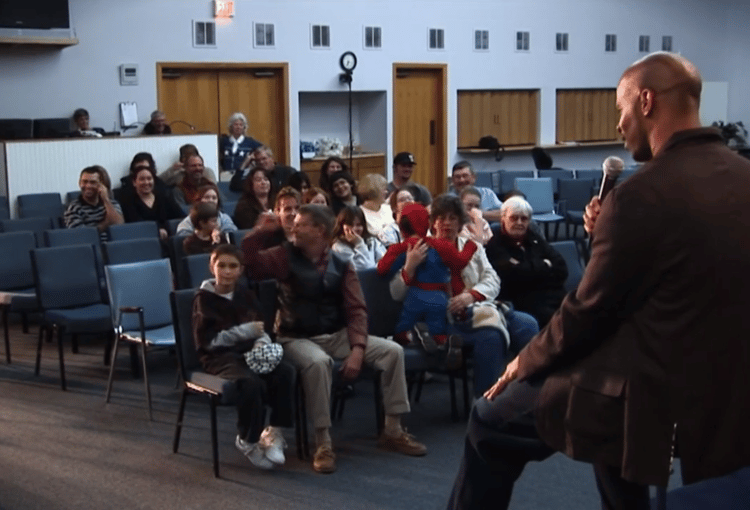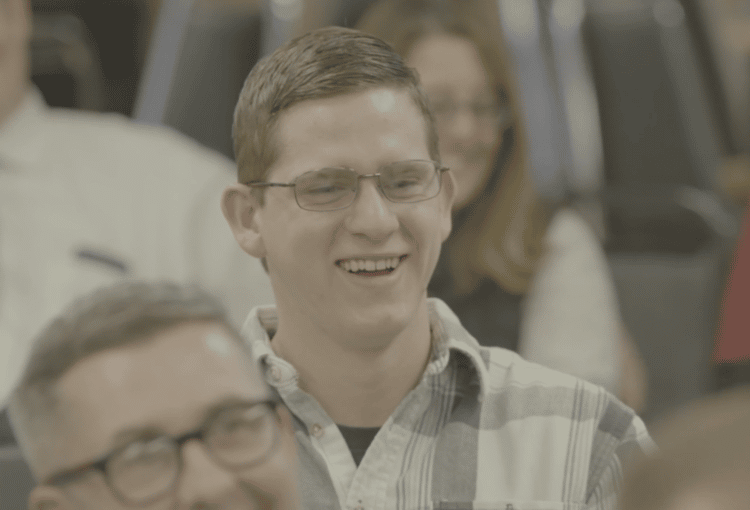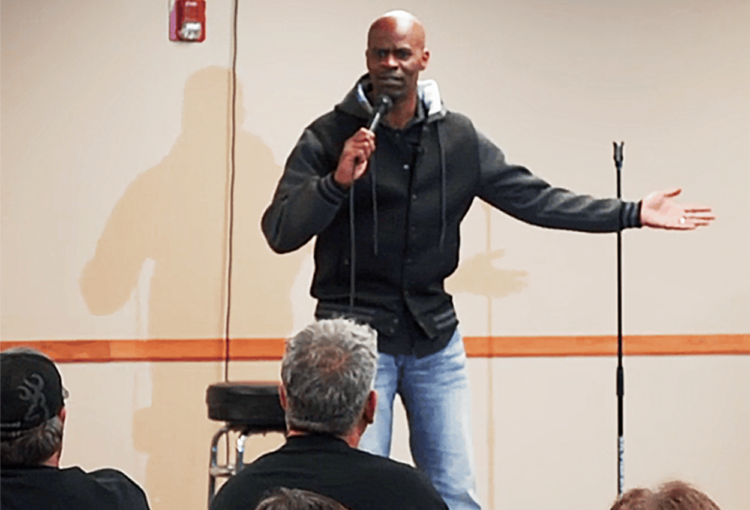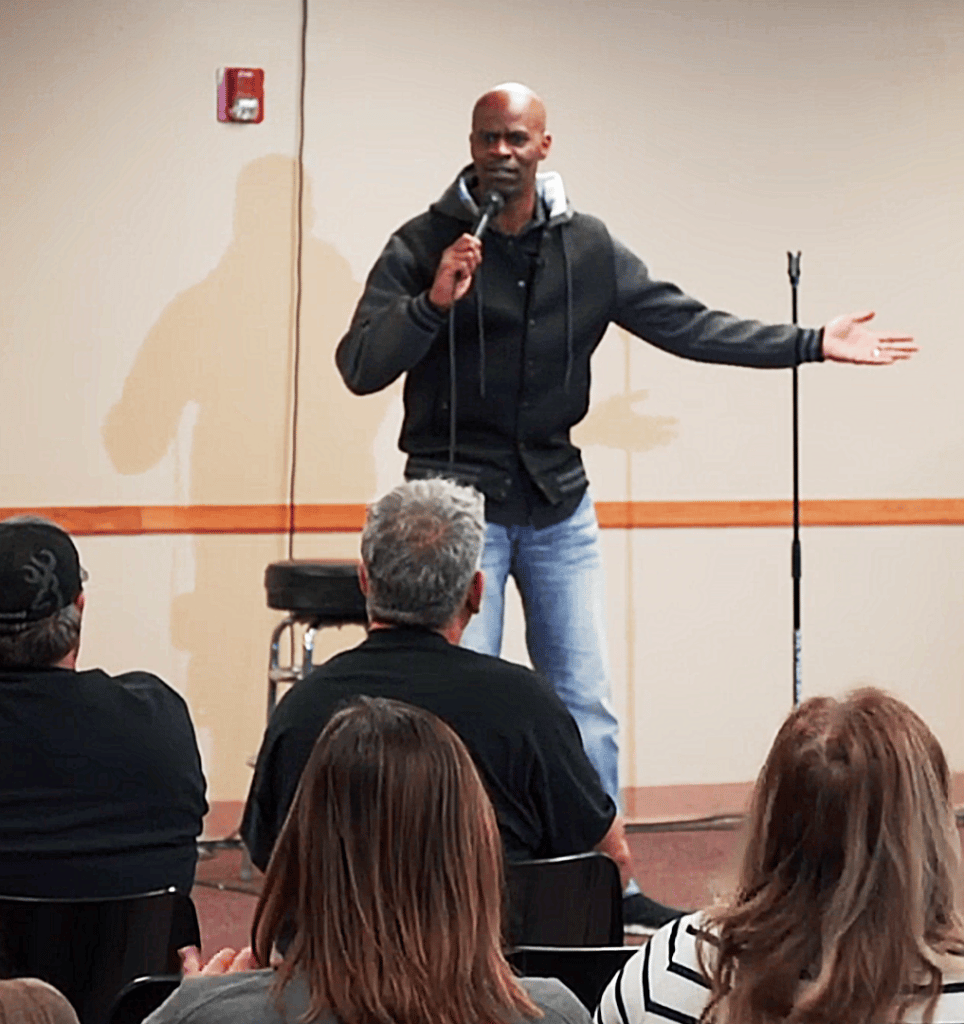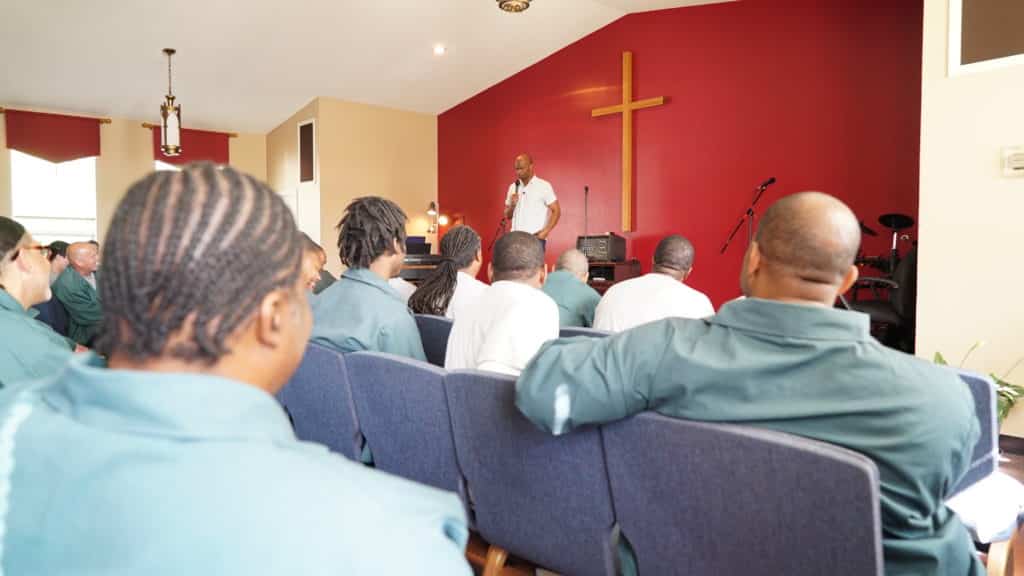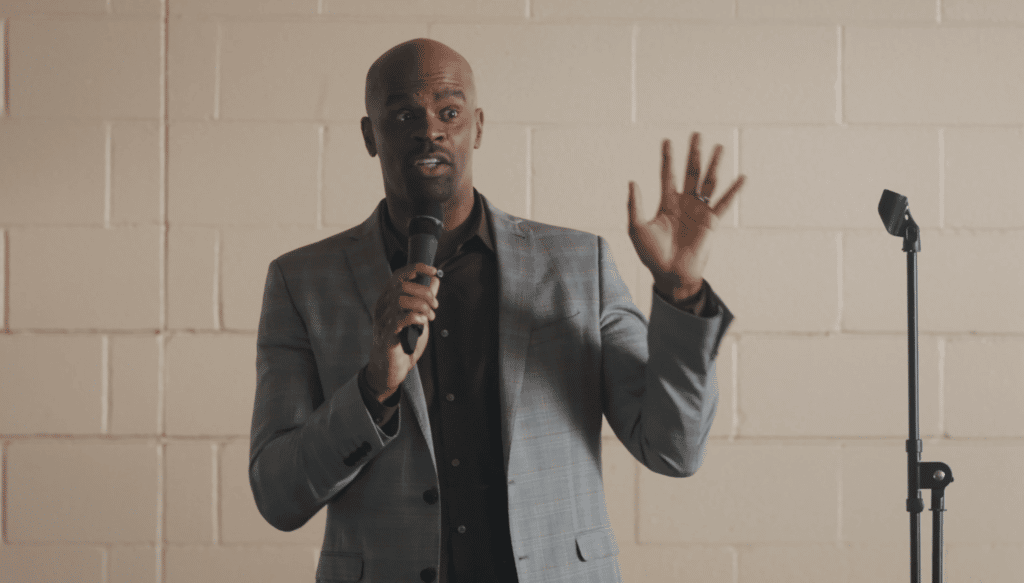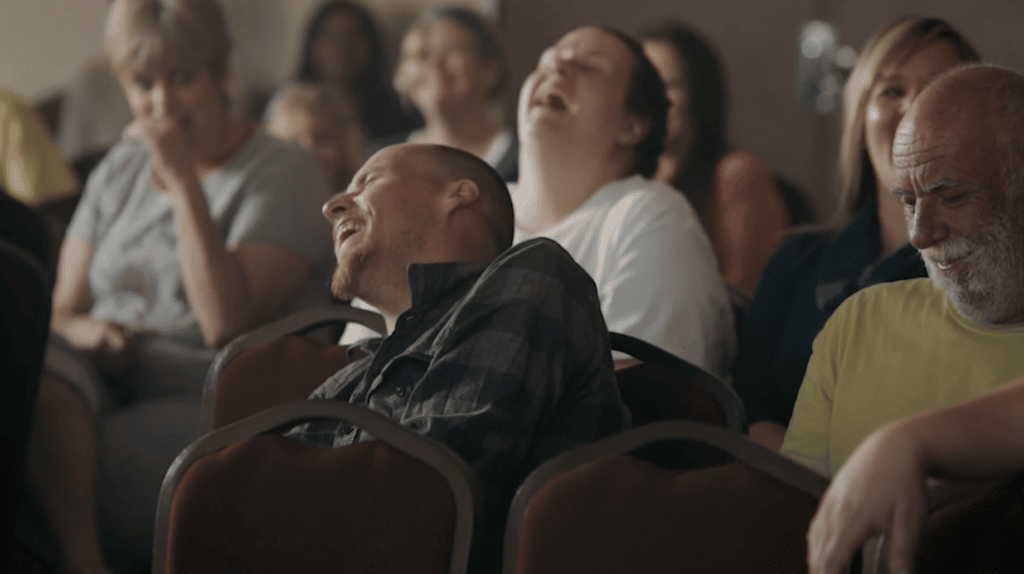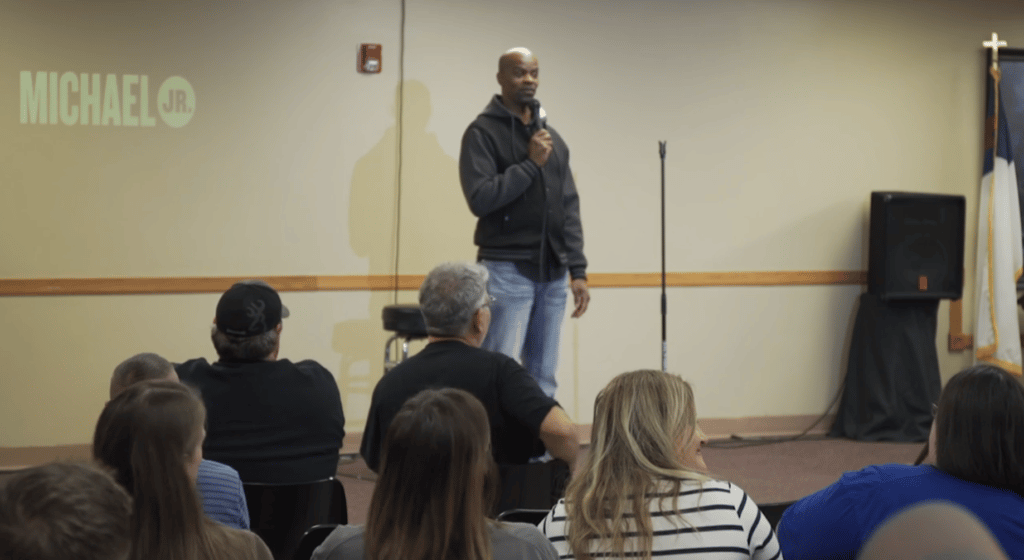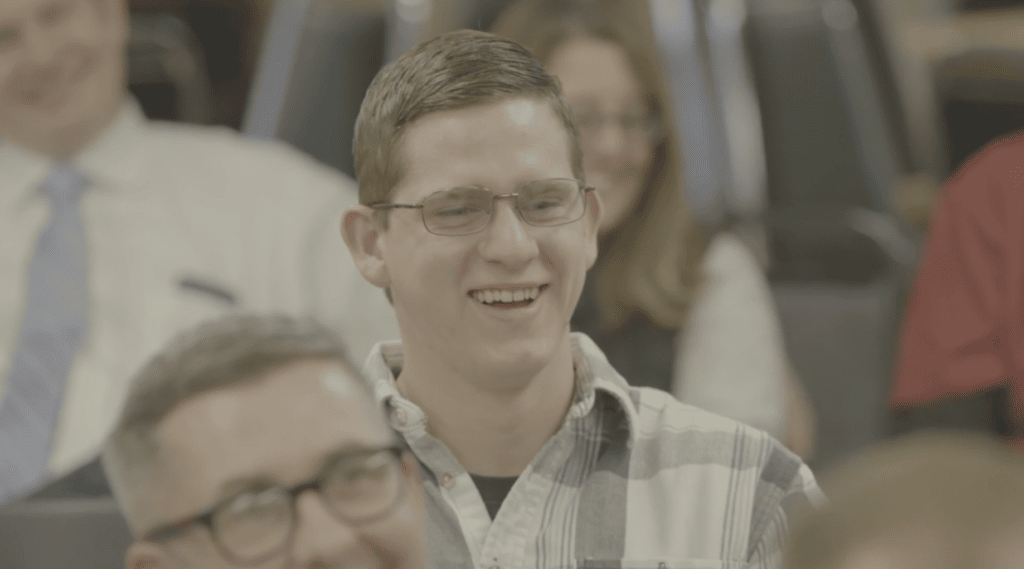
tangible evidence
of hope


Making laughter commonplace in uncommon places


The Vision
They are absolutely, unquestionably not a mistake.
Now, they can make a mistake. They could make a bad choice. But they can't be a mistake.

A Different Frequency
For me, making laughter common in uncommon places started outside of a comedy club in LA. One night, before going on stage to perform, I had an epiphany:
“What if instead of trying to get people to laugh, I gave them an opportunity to laugh?”
As I pondered this question, I happened to see a homeless man. I began asking myself:
“What about him? What if I gave him an opportunity to laugh?”
This question moved me to a different frequency. I re-tuned from the frequency of ‘getting’ to the frequency of ‘giving.’
A few days later, a lady asked me if I would ever consider doing a show on Skid Row. If I had gone through what these people had gone through, I would have had a hard time laughing.

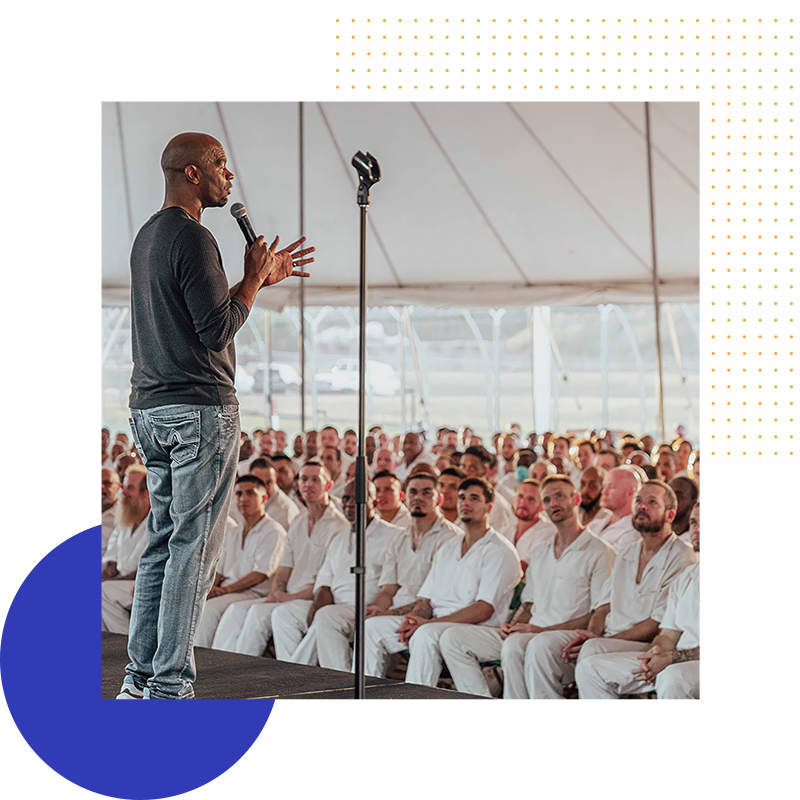
But I gave what I had. My job was simply to give.
I decided to go and give comedy to the people…and they started to laugh…in the midst of their circumstances.
That’s when I began to understand that laughter is the tangible evidence of hope.
You can have hope, but when you laugh — you know it’s actually there.
Everyone deserves an opportunity to laugh.
Everyone deserves an opportunity to hope.

Laughter opens up hearts to hope. Hope can open the door to healing.

Moments

My name is Dennis, I’ve been HIV positive for 13 years; and I need to laugh.
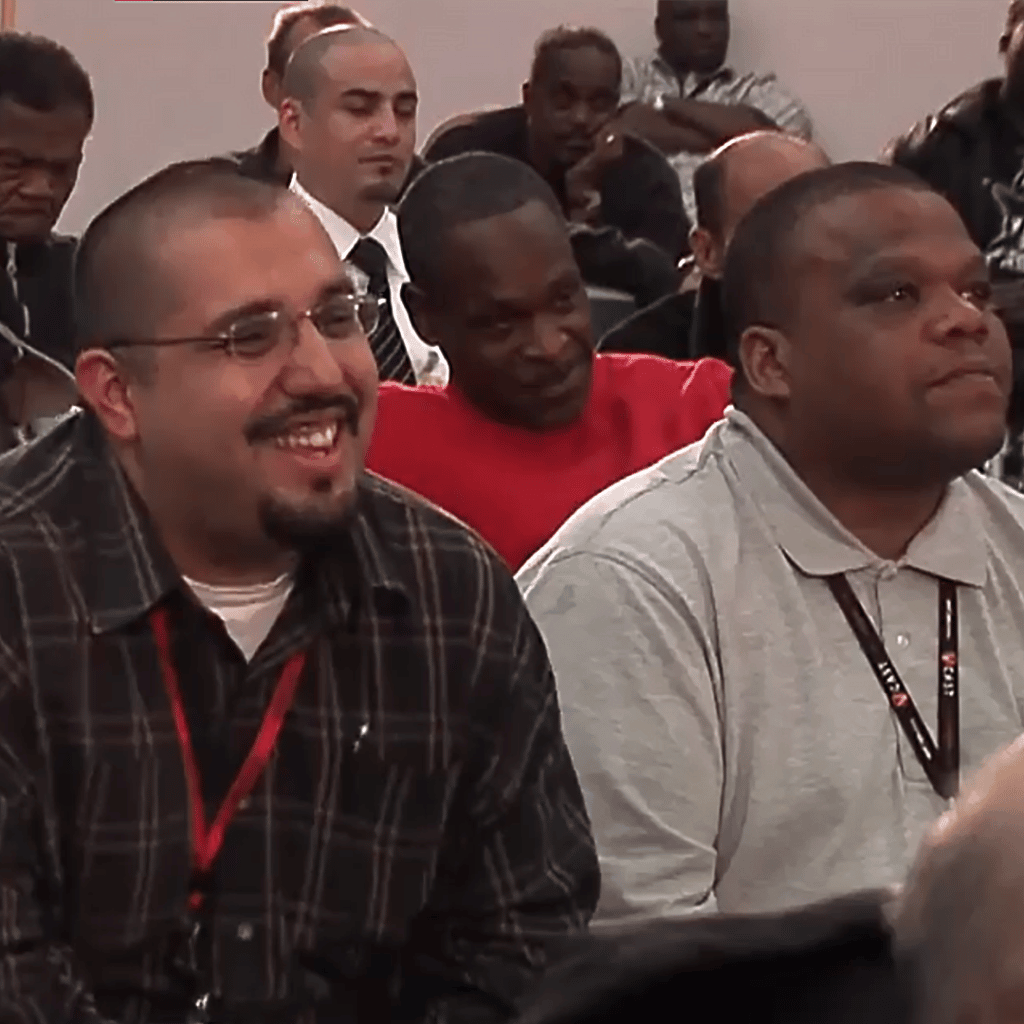

Everybody deserves a laugh. Everybody.
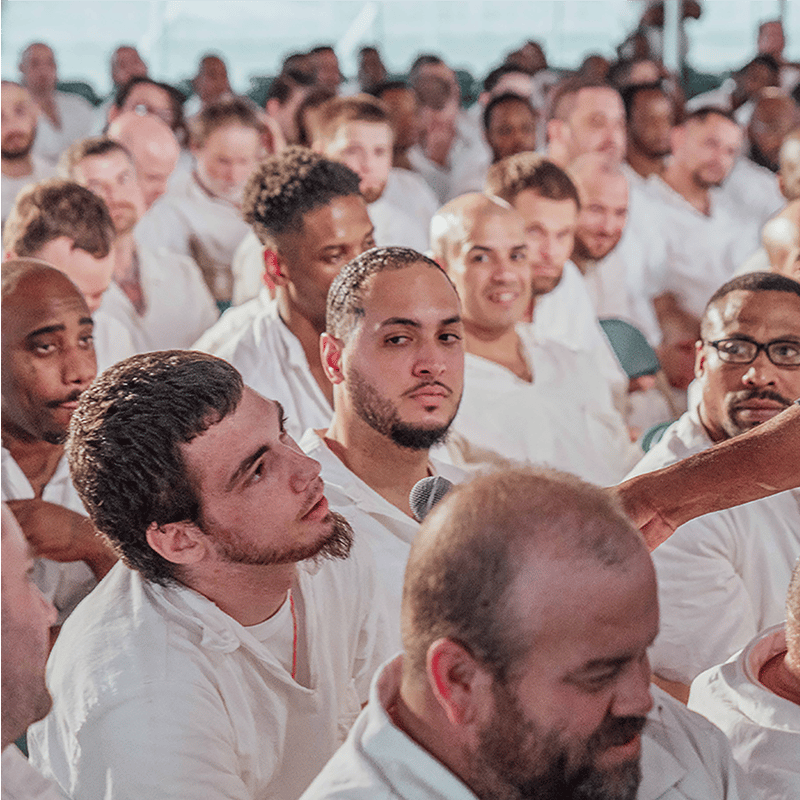

Sometimes, you know, you gotta laugh to keep from crying.
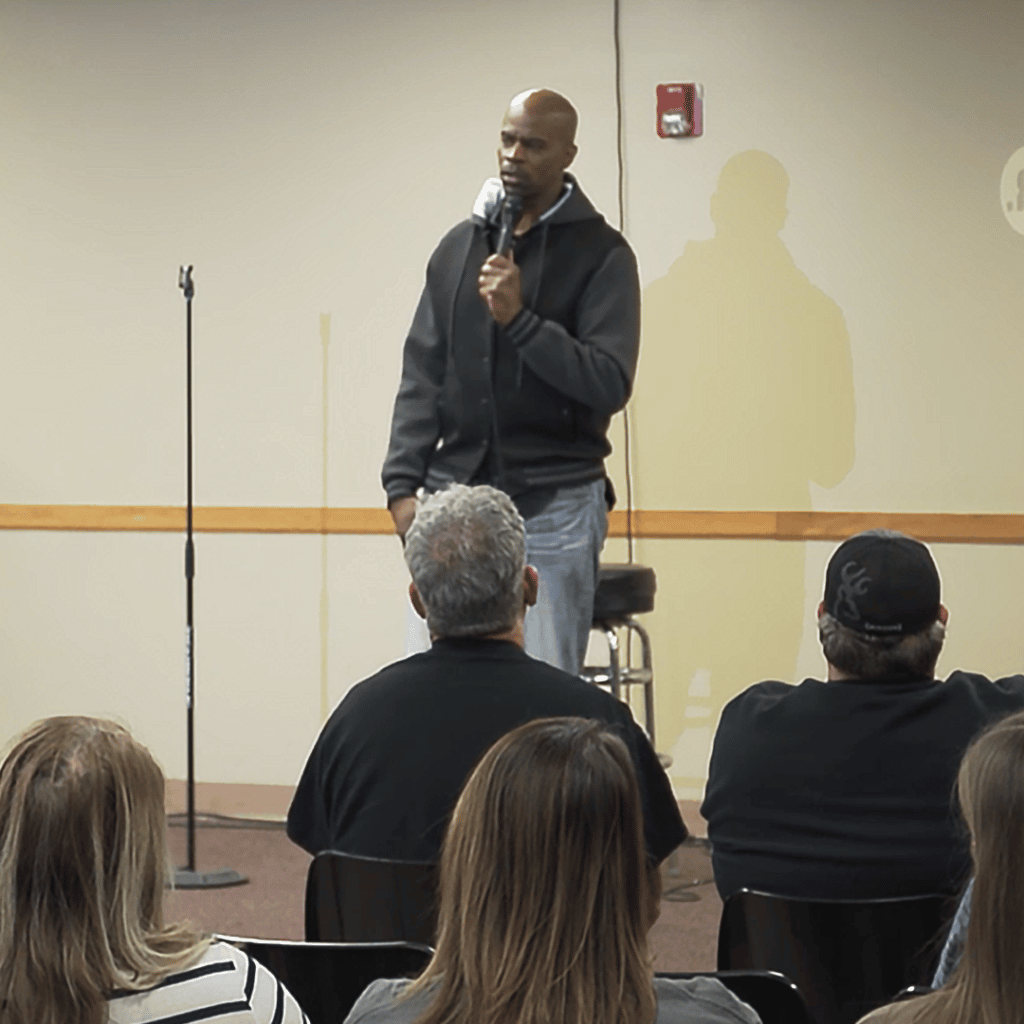

People still need to laugh.


Laughter lets me know that I’m still a human being. That lets me know that I’m alive.

Bringing laughter to those in need


The Richardson Family

Hear From The Forgotten
2,380
Minutes of laughter given
2,380
Minutes of laughter given

Join The Journey
Great comedy is based upon a setup and a punchline
Through my years of writing comedy, I’ve seen the parallel that every life carries a setup that can deliver a great punchline. Let me explain…
Your setup is a combination of your talents, resources, circumstances, and opportunities – all leveraged to find common ground with your audience.
If you are keenly aware of the ingredients involved in the setup of your life, you may just be ready to deliver your punchline!
I want to invite you to consider delivering a punchline of hope and healing to those who need it the most.
Receive Our Newsletter

Challenge 1:
The In-Person Challenge
As part of this challenge, you will receive exclusive updates and an insider look at the event you are helping to produce.
Your generosity can insert hope into hopeless situations!
Challenge 2:
The Video Challenge
Your setup is a combination of your talents, resources, circumstances, and opportunities - all leveraged to find common ground with your audience.
If you are keenly aware of the ingredients involved in the setup of your life, you may just be ready to deliver your punchline!
I want to invite you to consider delivering a punchline of hope and healing to those who need it the most. Check out some of these “challenges” that I believe are going to move people from coping to hoping again!
Their brains were connecting sobriety and freedom to laughter.
There are two reasons why humans are compelled to do anything:
1. To avoid pain
2. To gain pleasure
If we add pleasure to this experience, our success rate could jump. Your giving can help us create content that will open hearts to positive change. Are you willing to help out?


Challenge 2:
The Video Challenge
Your setup is a combination of your talents, resources, circumstances, and opportunities - all leveraged to find common ground with your audience.
If you are keenly aware of the ingredients involved in the setup of your life, you may just be ready to deliver your punchline!
I want to invite you to consider delivering a punchline of hope and healing to those who need it the most. Check out some of these 'challenges' that I believe are going to move people from coping to hoping again!
Their brain was connecting sobriety and freedom to laughter.
There are two reasons humans are compelled to do anything:
1. To avoid pain
2. To gain pleasure
If we add pleasure to this experience, our success rate could jump. Your giving can help us create content that will open hearts to positive change. Are you willing to help out?
#BeThePunchline

Frequently Asked Questions
Why Laughter?
According to the Mayo Clinic, there are a multitude of physical health benefits to laughter. Laughter can increase your oxygen intake, which can in turn stimulate your heart, lungs, and muscles. Laughing further releases endorphins, the feel-good chemicals our bodies produce to make us feel happy and even relieve pain or stress. The act of increasing and then decreasing our heart rate and blood pressure through laughter is also ultimately calming and tension-relieving. Laughter can even boost our immune system response through the release of stress-and illness-reducing neuropeptides.
Can Laughter Really Help Prisoners?
- Emotional release; reduces anger and violence.
Prisoners often experience extreme negative emotions like anger, fear, worry, and loneliness. This leads to a troubled state of mind that can easily break into rage and violent forms of release. Therapeutic laughter is an excellent natural way to provide violent-free emotional release through catharsis. It also provides new ways to deal with these strong emotions in a healthy, non-violent, and non-confrontational way.
- Stress reduction.
Prisoners experience high stress levels, especially in overcrowded facilities, with a resulting lack of privacy. Therapeutic laughter reduces stress levels quickly and naturally and provides new ways of dealing with stress, which can lead to long-term stress reduction. By providing a new mental perspective, laughter often transforms the perceptions of problems that were seen as huge into minor irritations.
- Laughter promotes empathy and communication, improves cooperation with authority, and reduces disciplinary problems.
The regular practice of therapeutic laughter leads to a positive state of mind. In some prisons, a substantial improvement in the overall mood and atmosphere of the establishment has been reported.
- Improves mood-state, decreases depression and psychological problems.
Regular therapeutic laughter sessions can result in an improved state of mind and an increased willingness to participate in voluntary training, education, and work opportunities that are offered.
- Improves health and reduces health-related costs.
Regular therapeutic laughter sessions provide excellent cardio and aerobic exercise, increasing oxygen levels in the bloodstream and major organs. Physiologically, laughter boosts the performance of the immune, digestive, and cardiovascular systems. A reduction in outbreaks of colds, flus, and other illnesses has been noted after a few months of regular therapeutic laughter sessions.
While all prisoners can benefit from therapeutic laughter sessions, the greatest improvement in their state of mind has been observed among younger prisoners. From LaughterOnlineUniversity.com
What About The Workers?
- Improved efficiency and work performance
- Improved emotional intelligence
- Strong team building, a change from individual competitiveness to team cooperation
- Improved mood, morale, and state of mind
- Better able to perform under stress
- Decrease in domestic problems
- Reduced staff turnover
- Improved health and wellness



